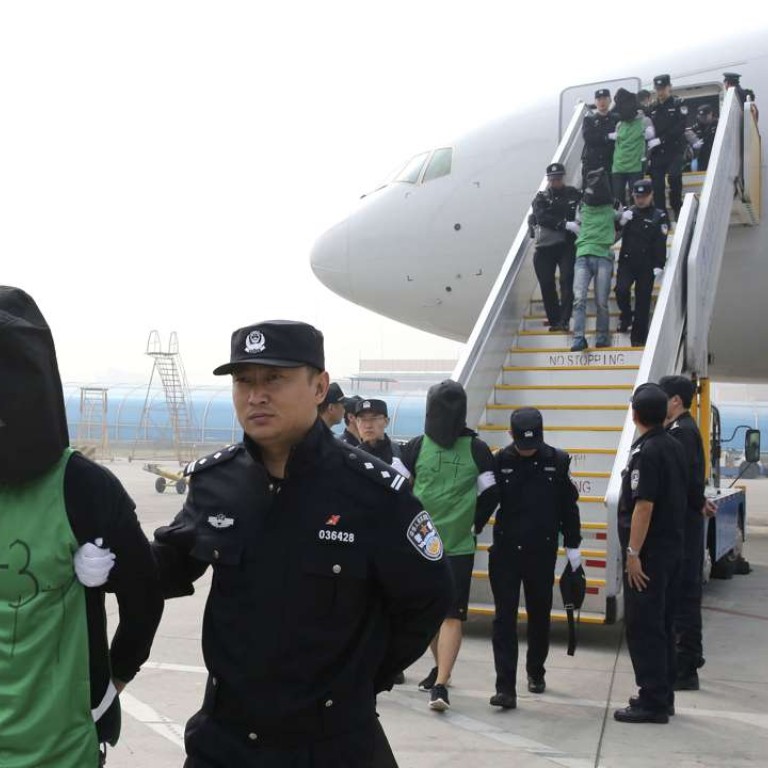
Who’s behind the fake bank accounts and websites used by China’s notorious telecoms fraudsters?
Rising number of telecoms fraud cases is breeding secondary illegal industries
The growing number of telecom frauds has led to an increase in illegal support industries, including personal information collection and fake website design, mainland media reports.
Such outsourced industries, which provide assistance to fraud gangs, are highly specialised. Some collect and sell personal information, others set up bank accounts or obtain SIM cards under fake names, according to Outlook Weekly, a news magazine published by Xinhua.
Yet others specialise in designing fake websites or leasing out lines for Internet phones with changeable numbers.
“Fraud gangs are the main clients in such industries,” said a spokesperson with the criminal investigation bureau of the Ministry of Public Security. “They benefit a lot from working with fraud gangs and some have even developed stable relationships with such gangs.”

Telecom fraud cases in China had been growing by 20 to 30 per cent annually for the past decade, the report said. The sums involved in each case were growing also, as not only individuals but also companies became victims. Since 2013, 104 cases each involved losses of more than 10 million yuan (HK$11.6 million).
More than 2,390 cases involved losses of more than 1 million yuan in the same period. The largest loss from a single victim was 117 million yuan, the report said.
Support from secondary industries is vital to gangs involved in fraud, who rely heavily on bank accounts and SIM cards in fake names, making it more difficult for police to track the perpetrators of such scams.
Some groups hired migrant workers, students or drug addicts to open accounts in their names, paying 50 to 100 yuan per account, said police officer Chen Zongqing who serves in Quanzhou, Fujian province, known as a major base of frauds.
The worst-hit spots were developed cities on China’s eastern coastline, but there had been a growing number of such cases in central and western cities also, the Ministry of Public Security spokesperson said.
Fraud gangs were also relocating their bases to Europe and Africa as Beijing stepped up cooperation with police departments in Southeast Asia, where most gangs were previously based, the spokesperson said.

